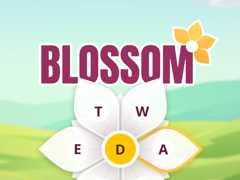noun (1)
verb (1)
noun (2)
adjective
verb (2)
- noun5
Synonyms
Example Sentences
Word History
Phrases Containing
Rhymes
Entries Near
Related Articles
- To save this word, you'll need to log in.
Synonyms ofcamp
Noun (1)
Verb (1)
Examples ofcamp in a Sentence
Word History
Noun (1)
earlier, "area, usually enclosed and fortified, occupied by elements of an army during a campaign or for training," borrowed from Middle French (earliest inlit de can "camp bed"), probably from Picard & Norman dialectcamp "field" or Old Occitancan, camp "field, jousting lists, military camp," going back to Latincampus "flat expanse of land, plain, field," of uncertain origin
Note: The Latin word has been compared with*kamp-, a presumed substratal root evident in words denoting bends, curves, crookedness, etc. (seejamb). Analogy has been drawn to Greekánkos "valley, glen" andankýlos "bent, curved,"ankṓn "elbow, bend," etc., thoughánkos scarcely accords with the meaning "flat expanse of land."
Verb (1)
borrowed from Middle Frenchcamper "(of troops) to establish a camp," derivative ofcamp "area occupied by elements of an army,campentry 1"
Noun (2)
origin uncertain
Note: The wordcamp as noun, adjective and verb (herecampentry 3,campentry 4 andcampentry 5) all appear around the same time, at the end of the first decade of the twentieth century; hence it is difficult to determine which part of speech was primary and which derived. The word is almost certainly older, though the evidence is less direct. On October 22 and 23, 1874, newspapers in Manchester, England, reported on the judicial examination of three men apprehended the previous evening wearing women's clothing. One of the men, Francis Mack, was carrying a ticket on which was printed "Her Majesty Queen of Camp will hold alevee and grand bal-masque [i.e.,bal masqué 'a masked ball'] on Wednesday, Oct. 21st, 1874." The men had been charged with vagrancy, but since there was no proof that they were vagrants, they were released, with stern admonishments by the judge on the foolishness of their behavior. (See full text and bibliographical references at Rictor Norton, editor, "Queen of Camp, 1874",Homosexuality in Nineteenth-Century England: A Sourcebook, at rictornorton.co.uk/eighteen/1874camp.htm, accessed 10/23/2023.) Another piece of early evidence is the wordcampish, presumably "somewhat camp," which appears in a letter written on November 21, 1868, by William Frederick Park to Lord Arthur Clinton; the letter was produced and read to the court during a judicial examination of Park and Thomas on May 28, 1870, after both had been arrested wearing women's clothing. The letter reads "My 'campish undertakings' are not at present meeting with the success that they deserve; whatever I do seems to get me into hot water somewhere" (The Observer, May 29, 1870, p. 3). Nothing in the letter further elucidates the word. It has been suggested thatcamp in the lexicon of gay British men is somehow derived fromcampentry 1, as denoting either the dash and bravado of military life or its permissiveness. TheOxford English Dictionary, third edition, avers thatcamp is probably borrowed from Frenchse camper, glossed as "(colloquial) to assume a proud, bold, or provocative posture, to strike a pose (1671 in Molière)."Trésor de la langue française definesse camper, literally, "to establish a camp," as "often informal, dated to set oneself in a posture implying boldness, and sometimes bravado or cheekiness" ("souvent fam[ilier], vieilli. s'établir, s'installer dans une posture impliquant la hardiesse, parfois la bravade ou le sans-gêne"). This usage is derived from the literal sense ofse camper "to establish a camp." The etymology is possible, but the lines of transmission that would lead from French to English are not clear. Paul Baker listscamp as both Polari (a lexicon used among gay men in Britain with roots in the argot of theatrical and circus performers) and general slang, a treatment also accorded todrag—seedragentry 3; seeFantabulosa : A Dictionary of Polari and Gay Slang (London, 2004), p. 93-94.
Adjective
perhaps derivative ofcampentry 3
Note: See note atcampentry 3.
Verb (2)
perhaps derivative ofcampentry 3
Note: See note atcampentry 3.
Noun (1)
1528, in the meaning defined atsense 1a
Verb (1)
1543, in the meaning defined atintransitive sense 1
Noun (2)
circa 1909, in the meaning defined atsense 2
Adjective
1909, in the meaning definedabove
Verb (2)
1910, in the meaning definedabove
Phrases Containingcamp
Browse Nearby Words
Cite this Entry
“Camp.”Merriam-Webster.com Dictionary, Merriam-Webster, https://www.merriam-webster.com/dictionary/camp. Accessed 26 Nov. 2025.
Kids Definition
camp
1 of 2nouncamp
2 of 2verbMedical Definition
cAMP
abbreviationBiographical Definition
More from Merriam-Webster oncamp
Nglish:Translation ofcamp for Spanish Speakers
Britannica.com:Encyclopedia article aboutcamp
Subscribe to America's largest dictionary and get thousands more definitions and advanced search—ad free!
Merriam-Webster unabridgedMore from Merriam-Webster
[8]ページ先頭



